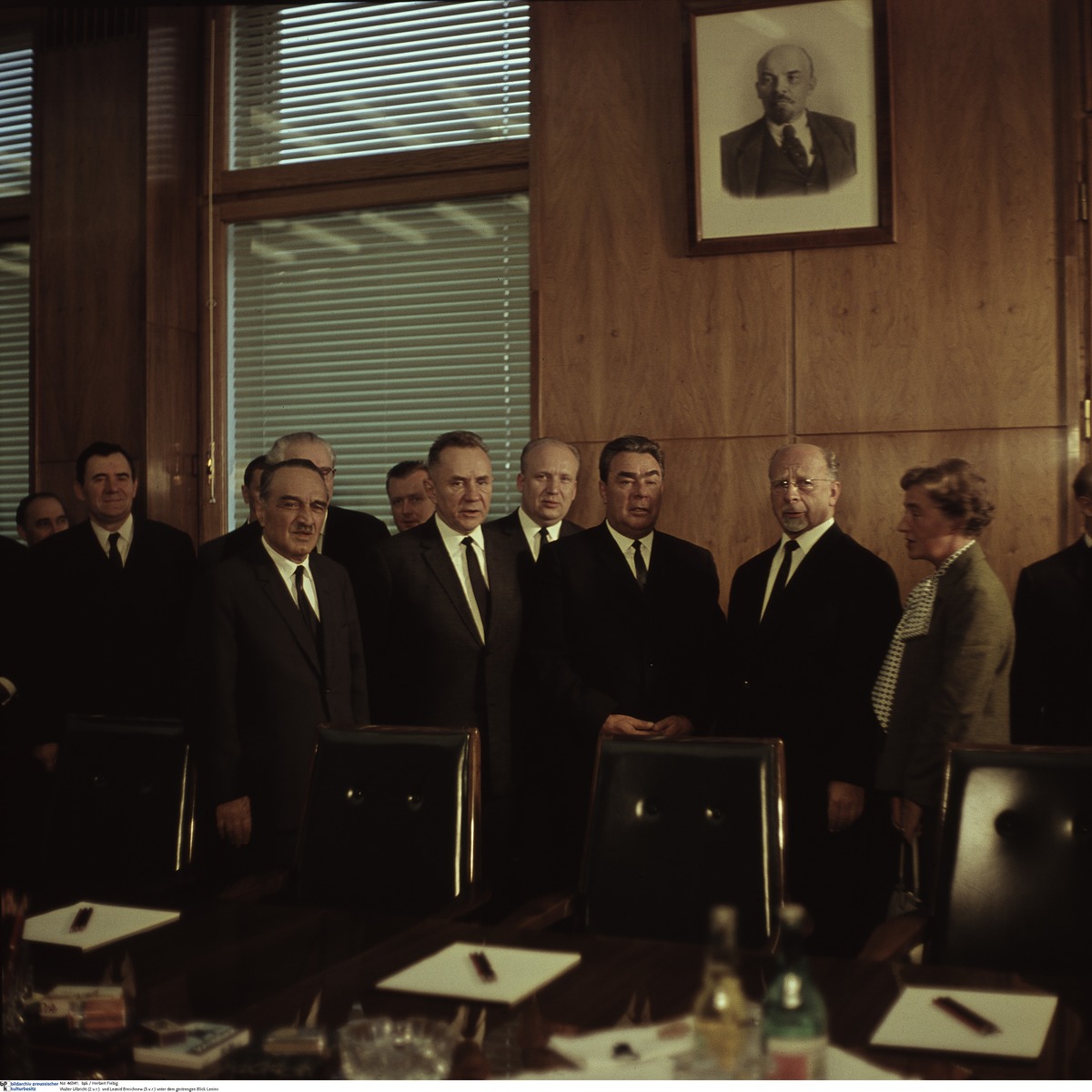Source

Source: Walter Ulbricht (2nd from right) and Leonid Brezhnev (3rd from right) under the stern gaze of Lenin (Moscow). Photo: Herbert Fiebig. Date: c. 1971.
bpk-Bildagentur, image number 00046341. For rights inquiries, please contact Art Resource at requests@artres.com (North America) or bpk-Bildagentur at kontakt@bpk-bildagentur.de (for all other countries).